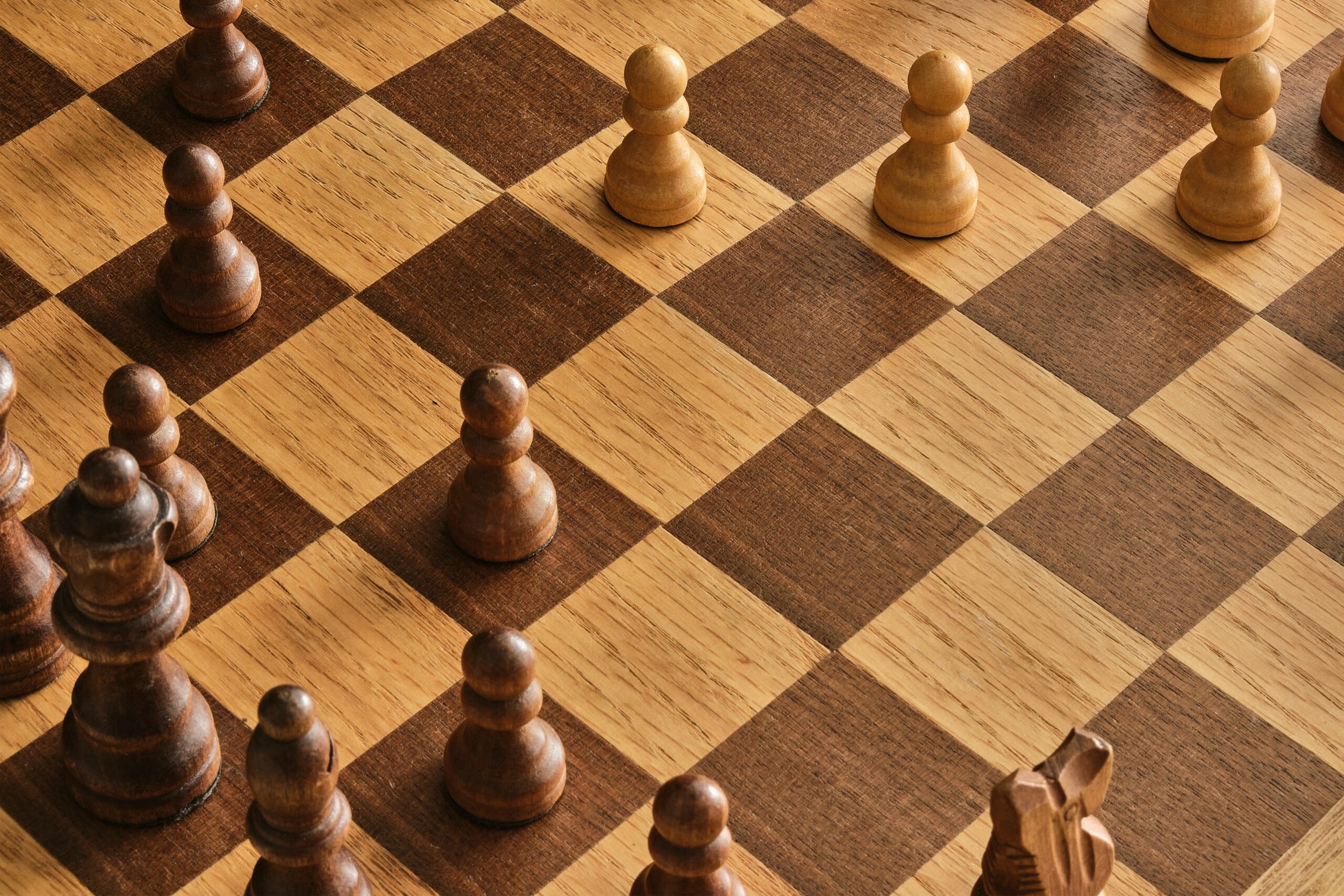Chess, a game of strategy, intellect, and calculated moves, has captivated the minds of players for centuries. Whether you’re a novice seeking to improve your skills or an experienced player aiming to reach new heights, the art of analyzing your chess games is a vital stepping stone toward mastery.
Examining your games with a critical eye can unveil the hidden depths of your decision-making process, strategic acumen, and tactical prowess. It’s a voyage of self-discovery, a path toward honing your strengths and addressing your weaknesses.
In this digital era, where chess engines and online databases have become indispensable tools, the possibilities for game analysis are boundless. However, amidst this abundance of resources, the question arises: What is the best way to analyze your chess games?
In this guide, we will delve into the various aspects of chess game analysis and explore the most effective approaches to uncovering the secrets hidden within your moves. We will examine the importance of self-reflection, the benefits of leveraging technology, and the value of human guidance in the pursuit of chess improvement. From studying opening theory and mid-game tactics to dissecting complex endgame positions, we will navigate through the multifaceted world of chess analysis.
So, whether you aspire to become a grandmaster or simply desire to enhance your playing skills, join us on this journey as we unravel the mysteries of chess analysis and unlock the door to a deeper understanding of the game. Prepare to embark on a quest that will sharpen your analytical abilities, expand your chess knowledge, and propel you toward victory on the checkered battlefield.
Why is analyzing chess games crucial for improving your skills?
Analyzing chess games serves as a fundamental pillar for improving your skills and advancing your level of play. By dissecting and examining your past games, you gain invaluable insights into your decision-making process, identifying both strengths and weaknesses in your gameplay. Through analysis, you can uncover recurring patterns, strategic tendencies, and tactical blind spots that may have hindered your progress.
Furthermore, analyzing your games helps you develop a deeper understanding of the principles underlying various positions and maneuvers, allowing you to refine your intuition and make more informed choices in future games. Ultimately, chess game analysis is the gateway to self-improvement and a crucial step on the path toward mastery.
What tools and resources can enhance your chess game analysis?
In the digital age, a plethora of tools and resources are available to enhance your chess game analysis. Chess engines, such as Stockfish or Komodo, provide powerful computational analysis, offering in-depth evaluations, suggested improvements, and tactical solutions. Online databases like ChessBase or lichess.org offer vast collections of games played by both amateurs and grandmasters, allowing you to study and compare different approaches to similar positions.
Opening books, endgame manuals, and annotated game collections provide a wealth of knowledge and insights from renowned chess experts. Additionally, recording your games using notation or chess software enables you to revisit and analyze them at your convenience. By leveraging these tools and resources, you can augment your analytical capabilities and gain a comprehensive understanding of the game.

How to set up an efficient chess game analysis routine?
Establishing an efficient chess game analysis routine is essential to ensure consistent growth and improvement. Start by allocating dedicated time for analysis, preferably shortly after playing a game when the details are fresh in your mind.
Begin by reviewing your games without the assistance of an engine, focusing on identifying key moments, critical decisions, and areas where you felt uncertain. Once you have assessed the game independently, employ a chess engine to uncover tactical errors, missed opportunities, and alternative moves.
Strive to understand the engine’s evaluations and explanations, rather than relying solely on its suggestions. Finally, consider seeking feedback from stronger players or a chess coach who can provide additional perspectives and insights. By adhering to a structured analysis routine, you can cultivate a systematic approach to improving your game.
| Aspect | Description | Benefits |
|---|---|---|
| Tactical analysis | Evaluating moves, capturing opportunities, and identifying tactical patterns. | Enhanced ability to spot tactical opportunities in future games. |
| Positional evaluation | Analyzing pawn structure, piece coordination, and strategic plans. | Improved understanding of positional concepts and long-term planning. |
| Endgame analysis | Studying endgame principles, techniques, and winning strategies. | Increased proficiency in endgame play and converting advantages. |
| Opponent analysis | Examining your opponent’s moves, identifying their strengths and weaknesses. | Developing strategies to exploit opponent weaknesses and improve decision-making. |
| Game progress tracking | Recording and reviewing your progress over time. | Identifying areas of improvement and measuring your chess growth. |
Which key aspects should you focus on during game analysis?
During game analysis, it is crucial to focus on several key aspects to extract maximum value from the process. Start by evaluating your opening choices, understanding the underlying ideas, and assessing whether you achieved a favorable position.
Pay attention to mid-game tactical motifs, such as pins, forks, or discovered attacks, both for yourself and your opponent. Analyze the critical decisions you made, exploring alternative moves and evaluating their consequences. In the endgame, examine your technique and understanding of basic endgame principles, such as pawn structure, king activity, and piece coordination.
Additionally, scrutinize your time management, psychological approach, and ability to calculate variations accurately. By comprehensively analyzing these key aspects, you can address weaknesses and refine your overall chess skills.
How to spot and learn from your tactical mistakes?
Spotting and learning from tactical mistakes is a vital part of chess game analysis. As you review your games, pay close attention to any blunders, missed tactics, or overlooked threats. Identify the moments where you miscalculated, overlooked a checkmate, or failed to exploit a tactical opportunity.
Try to understand the underlying reasons for these mistakes, whether it was a lack of calculation, a failure to consider the opponent’s threats or a lapse in concentration. Analyze alternative tactical possibilities that you missed during the game, evaluating their effectiveness and considering how they could have altered the outcome.
By learning from your tactical mistakes, you develop a sharper eye for tactics, strengthen your pattern recognition, and become more resilient against future tactical oversights.
What are the best strategies for evaluating positional advantages?
Evaluating positional advantages requires a strategic approach that goes beyond tactical considerations. Begin by assessing the pawn structure and pawn breaks, determining whether your position offers long-term pawn weaknesses or strategic outposts.
Evaluate the relative strengths of your pieces and their coordination, focusing on centralized pieces, active rooks, and well-placed knights. Analyze the king’s safety for both sides, assessing the potential for attacking opportunities or defensive vulnerabilities. Pay attention to space control, piece mobility, and the overall harmony of your position.
Additionally, consider the strategic goals of the position and develop a plan to exploit any imbalances or weaknesses in your opponent’s position. By employing these strategies, you can navigate the complexities of positional play and gain a competitive edge over your adversaries.

How can you utilize chess engines to deepen your analysis?
Chess engines are powerful tools that can significantly enhance your analysis capabilities. Utilizing chess engines allows you to delve deeper into the complexities of your games, offering objective evaluations and suggesting alternative moves or variations.
To make the most of chess engines, start by analyzing your games without their assistance, and forming your own conclusions and ideas. Once you have exhausted your own analysis, introduce the engine to validate your assessments and uncover hidden tactical or strategic possibilities.
Pay attention to the engine’s evaluations and variations, understanding the reasoning behind its suggestions. Be cautious not to blindly follow the engine’s recommendations but instead use them as a starting point for deeper exploration. By effectively utilizing chess engines, you can uncover deeper layers of analysis and improve your understanding of complex positions.
How to effectively analyze the endgame phase in your chess games?
The endgame phase is a crucial stage of the game where precise calculation and strategic understanding are essential. When analyzing the endgame, focus on understanding the fundamental principles and concepts that govern different types of endgame positions.
Study pawn structures, king and pawn endgames, rook endgames, and other common endgame scenarios. Pay attention to key endgame techniques such as pawn promotion, zugzwang, opposition, and the principle of two weaknesses. Analyze your decision-making in the endgame, assessing whether you capitalized on advantages or missed opportunities.
Additionally, use endgame tablebases or computer assistance to validate your analysis and gain insights into optimal play. By effectively analyzing the endgame phase, you can sharpen your endgame skills and gain a competitive edge in this critical stage of the game.
What are the benefits of analyzing famous chess games by grandmasters?
Analyzing famous chess games played by grandmasters provides numerous benefits to aspiring players. Studying these games allows you to witness masterful demonstrations of strategic planning, tactical brilliance, and creative maneuvers.
By analyzing grandmaster games, you can absorb and internalize their thought processes, decision-making, and positional understanding. These games serve as a source of inspiration and offer valuable lessons on various aspects of chess, including opening theory, middle game planning, and endgame technique.
Analyzing famous games also exposes you to different playing styles, broadening your horizons and expanding your repertoire of ideas. Moreover, it allows you to appreciate the historical context and evolution of chess as a game. By immersing yourself in the games of grandmasters, you gain valuable insights and accelerate your growth as a player.
How to incorporate game analysis into your training regimen?
Incorporating game analysis into your training regimen is essential for consistent improvement. Allocate dedicated time in your training schedule specifically for game analysis. Analyze your games individually, reviewing both your victories and defeats. Focus on identifying patterns, recurring mistakes, and areas for improvement.
Use chess engines and online databases to aid your analysis, but also strive to analyze independently to develop your own critical thinking. Consider annotating your games, recording your thoughts, and exploring alternative moves and variations.
Additionally, seek feedback from stronger players, coaches, or chess communities to gain fresh perspectives and insights. Incorporating regular game analysis into your training regimen ensures continuous growth, helps you learn from your mistakes, and enables you to refine your playing style and decision-making processes.
Can analyzing your opponent’s moves improve your game?
Analyzing your opponent’s moves is an invaluable aspect of game analysis that can significantly improve your game. By understanding your opponent’s choices and thought processes, you can gain insights into their strategies, weaknesses, and tactical patterns.
Analyzing your opponent’s moves allows you to identify recurring patterns or mistakes they make, enabling you to exploit their vulnerabilities. It helps you develop a deeper understanding of different playing styles and adapt your own approach accordingly. Furthermore, analyzing your opponent’s moves fosters critical thinking and encourages you to consider alternative moves and variations.
By studying your opponent’s decisions, you can expand your repertoire of ideas, improve your positional understanding, and enhance your overall chess awareness. Ultimately, analyzing your opponent’s moves complements your self-analysis, providing a holistic view of the game and facilitating strategic growth.

In General
Analyzing your chess games is a vital component of the journey toward chess mastery. It is through the process of analysis that you unravel the intricacies of your decision-making, uncover tactical oversights, and refine your strategic understanding. By implementing a systematic approach to game analysis and utilizing the wealth of tools and resources available, you can extract valuable lessons, identify areas for improvement, and sharpen your overall chess skills.
A successful analysis routine involves a combination of self-reflection, leveraging chess engines and databases, studying famous games, and seeking guidance from stronger players or coaches. By focusing on key aspects of the game, such as openings, tactics, endgames, and positional advantages, you gain a comprehensive understanding of the game’s various facets.
Furthermore, the analysis of your opponent’s moves provides valuable insights into their strategies and playing style, enabling you to adapt and exploit their weaknesses effectively. By incorporating game analysis into your regular training regimen, you ensure continuous growth, learn from your mistakes, and develop a sharper and more nuanced approach to the game.
In the end, the best way to analyze your chess games is through a balanced and dedicated approach that combines critical thinking, technology, and the wisdom of chess masters. Embrace the voyage of self-discovery that analysis offers, and allow it to guide you towards a deeper understanding of the game, improved decision-making, and ultimately, greater success on the checkered battlefield. So, embark on this transformative journey and unlock the hidden potential within each move, for it is through analysis that the true beauty and intricacies of chess are revealed.




